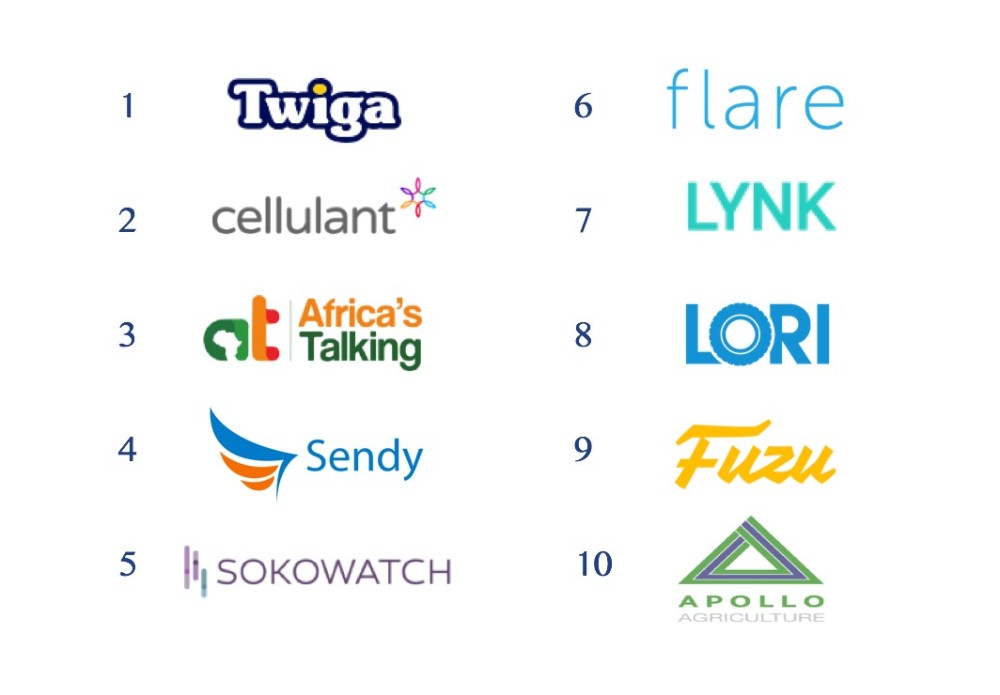A ‘startup’ is a company that is confused about 1. What its product is. 2. Who its customers are. 3. How to make money.
Dave McClure, 500Startups co-founder
In the vibrant landscape of Africa’s booming tech startup ecosystems, Tanzania seems to lag behind its neighboring countries. While nations like Kenya and Nigeria thrive as hotbeds of innovation and entrepreneurship, Tanzania’s tech startup scene appears to be in the shadows. But why? What factors have hindered its growth and prevented it from reaching its full potential? In this exploration, we explore into the complexities of Tanzania’s tech startup landscape, uncovering the challenges and untapped opportunities that lie within, as we seek to unravel the enigma behind its comparatively subdued entrepreneurial spirit.
The Comparison
To understand the disparity, we must first examine the success stories of tech startup scenes in other African countries. Kenya, for instance, has positioned itself as the Silicon Savannah, boasting a thriving ecosystem that has produced numerous groundbreaking companies. Nigeria’s tech scene, commonly referred to as Naija Tech, has witnessed remarkable growth and has become a hotspot for tech innovation on the continent. These countries have achieved this success due to a combination of factors, including favorable policies, robust infrastructure, access to funding, and a supportive entrepreneurial culture.
For example, in Kenya, the e-commerce market is booming, with startups like Jumia and Konga becoming household names. Fintech startups are also using technology to provide financial services to people who are traditionally underserved by banks. And in agriculture, technology is being used to revolutionize the way crops are planted, watered, and harvested.
The tech impact in Tanzania is not as significant as in other African countries. However, there are a few startups that are making a difference. There is a large community of young tech entrepreneurs in Kenya and Nigeria who are building innovative startups. There are also a few young tech entrepreneurs in Tanzania who are building innovative startups. However, the number of young tech entrepreneurs in Tanzania is much smaller than in Kenya and Nigeria.
The governments of Kenya and Nigeria are using technology to provide a number of services to their citizens. For example, they are using e-government services, e-health services, and e-learning services. The government of Tanzania is starting to use technology to provide services to its citizens. However, the adoption rate is slower than in Kenya and Nigeria.

Factors Contributing to Success
One crucial element in the success of Kenya and Nigeria’s tech startup scenes is the presence of enabling policies and regulations. These countries have implemented measures to attract foreign investment, streamline business registration processes, and offer tax incentives. Additionally, they have prioritized the development of physical and digital infrastructure, ensuring widespread access to reliable internet connectivity and technology hubs that foster collaboration and knowledge-sharing.
Access to funding is another significant factor. In Kenya and Nigeria, venture capital firms and angel investors actively seek out promising startups, providing the necessary financial support and mentorship to fuel their growth. Moreover, these countries have established dedicated funding initiatives, such as innovation funds and grants, aimed at nurturing and supporting tech startups.
Challenges Facing Tanzanian Startups
Tanzania faces a myriad of challenges that impede the growth of its tech startup scene. One key obstacle is the lack of robust infrastructure, particularly reliable internet connectivity. While efforts have been made to improve connectivity, the digital divide persists, hindering the reach and scalability of tech startups. Moreover, limited access to funding and investment capital poses a significant hurdle for Tanzanian entrepreneurs. The lack of venture capital firms and angel investors willing to take risks in the country restricts the opportunities available for startups to secure vital funding.
Furthermore, the regulatory environment in Tanzania can be complex and bureaucratic, deterring potential investors and stifling innovation. Simplifying and streamlining business registration processes and offering incentives for foreign investment would go a long way in attracting capital and nurturing the growth of tech startups.
Closing the Gap
To close the gap and propel Tanzania’s tech startup scene forward, several key actions must be taken. Firstly, the government should prioritize the development of digital infrastructure, ensuring widespread and affordable access to the internet across the country. This will empower startups to scale their operations and reach a broader customer base.
Secondly, Tanzania needs to establish a conducive regulatory environment that encourages innovation and eases the burden on entrepreneurs. Streamlining business registration processes, reducing bureaucratic red tape, and providing tax incentives would attract domestic and foreign investors, fostering a thriving startup ecosystem.
Additionally, initiatives should be implemented to enhance access to funding. Creating venture capital funds dedicated to supporting tech startups, fostering relationships with international investors, and promoting public-private partnerships can provide the necessary financial backing and mentorship to propel Tanzanian startups towards success.
My Perspective on how to achieve growth on the Global tech scene
As a digital journalist in Tanzania, I have witnessed firsthand the immense potential that exists within the country. I firmly believe that Tanzania’s tech startup scene can make a significant impact on the country’s development. I have personally experienced the challenges of navigating the complex regulatory landscape, securing funding, and overcoming infrastructure limitations. However, I have also witnessed the determination and resilience of Tanzanian entrepreneurs who are committed to driving innovation and solving local problems through technology.
I believe that Tanzania has the potential to become a leading hub for tech innovation in Africa. However, in order to achieve this, the government and the private sector need to work together to address the challenges that the country faces. I am confident that if these challenges can be overcome, Tanzania will be well-positioned to become a major player in the global tech scene.
To make this right, Tanzania’s tech startup environment may currently lag behind other African countries, but it has the necessary ingredients for success. By addressing infrastructure challenges, simplifying regulations and improving access to finance, Tanzania can unlock the full potential of its technology ecosystem. The government, the private sector and international partners must work together to create a conducive environment in which Tanzanian entrepreneurs can thrive. With the right support and opportunity, Tanzania can become a powerful hub of technological innovation, fueling economic growth and improving the lives of its citizens.
Read more of the articles here.

